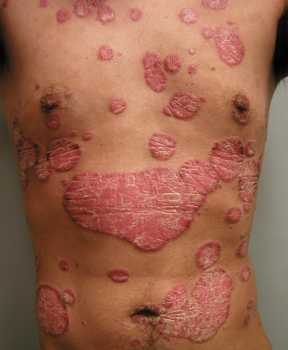
06 Oct Study Evaluates Risk of Respiratory Infections, Including COVID-19, In Psoriasis Patients on Biologics
MedicalResearch.com Interview with:

Lara van der Schoot
Lara van der Schoot
MD, PhD candidate
Department of Dermatology
Radboud University Medical Center
Nijmegen, The Netherlands
MedicalResearch.com: What is the background for this study?
Response: Psoriasis is a chronic, immune mediated skin disease for which effective targeted biological agents have become available the past years. Inherent to their immunomodulatory mechanism of action, biologics might increase infections risk. We know from clinical trial data that respiratory tract infections are among the most common adverse events during biologic treatment, but real-world data is sparse. Regarding the risk of serious infections among biologic users, mostly defined as infections requiring hospitalization, previous studies provided different results and there is limited comparative data for the newer biologics available.
The COVID-19 pandemic turned attention to the risk of infections among biologic users, especially for respiratory tract infections, as they might relate to susceptibility for viral respiratory tract infections such as COVID-19.
In our study, the primary aim was to determine the risk of respiratory tract infections among real-world psoriasis patients treated with biologics, including the newer IL-17 and IL-23 inhibitors. The secondary aim was to assess risk of serious infections in this cohort. Additionally, rates of SARS-CoV-2 infections were assessed.
MedicalResearch.com: What are the main findings?
Response: For this study, we used daily practice data of the BioCAPTURE registry, which contains data of psoriasis patients treated with biologics from 2005 of 18 centres in the Netherlands. In total, 714 psoriasis patients with 1325 treatment episodes were analysed. Confounder adjusted analysis showed no differential risk of respiratory tract infections between included biologics (adalimumab, etanercept, infliximab, ustekinumab, secukinumab, ixekizumab, and guselkumab). For all types of serious infections, no differential risk was revealed as well although comparative analyses might have been underpowered due to the low rates observed.
Regarding SARS-CoV-2 infections, preliminary results of a subcohort of 2020 showed an incidence rate of SARS-CoV-2 infections comparable to the rate of the total Dutch population in 2020. This might indicate that biological treatments do not impact psoriasis patients’ susceptibility to COVID-19 infections, although the low rates observed might also have resulted from higher risk mitigating behaviour.
MedicalResearch.com: What should readers take away from your report?
Response: Results of our study showed no confounder corrected differential risk of respiratory tract infections between included biologics, including IL-17 and IL-23 inhibitors, in a prospective psoriasis patients cohort. In general, absolute numbers of all types of serious infections were low and confounder adjusted analyses indicated no differential risk of serious infection between included biologics as well, but comparative analysis might have been underpowered due to the lower rate of infections. Extended single centre data did not signal increased risks of COVID-19 susceptibility, but this needs to be further investigated.
Results of our study might indicate that risk of respiratory tract or serious infections should not be a key discriminating factor when choosing between biologics. However, validation of these results in other real-world studies is important.
MedicalResearch.com: What recommendations do you have for future research as a result of this work?
Response: Integrating our data with other real-world studies would be of added value. In addition, future studies could focus on actual treatment decisions in case of an infection, e.g. should a patient stop or continue its biologic treatment?
Regarding COVID-19, more research is needed to investigate the risk of COVID-19 in this patient population and to determine the actual impact of COVID-19.
Disclosures: LS van der Schoot carries out clinical trials for Janssen and Novartis. All funding is not personal but goes to the independent Research Fund of the Department of Dermatology of the Radboud University Medical Center Nijmegen, The Netherlands.
Citation: Study presented at the EADV 30th Congress 2021
Presentation citation: L.S. van der Schoot et al. Risk of respiratory tract infections and serious infections in psoriasis patients treated with biologics: results from the BioCAPTURE registry. Presentation ID FC03.02, EADV Congress 2021.
[wysija_form id=”3″]
[last-modified]
The information on MedicalResearch.com is provided for educational purposes only, and is in no way intended to diagnose, cure, or treat any medical or other condition. Always seek the advice of your physician or other qualified health and ask your doctor any questions you may have regarding a medical condition. In addition to all other limitations and disclaimers in this agreement, service provider and its third party providers disclaim any liability or loss in connection with the content provided on this website.
Last Updated on October 6, 2021 by Marie Benz MD FAAD
